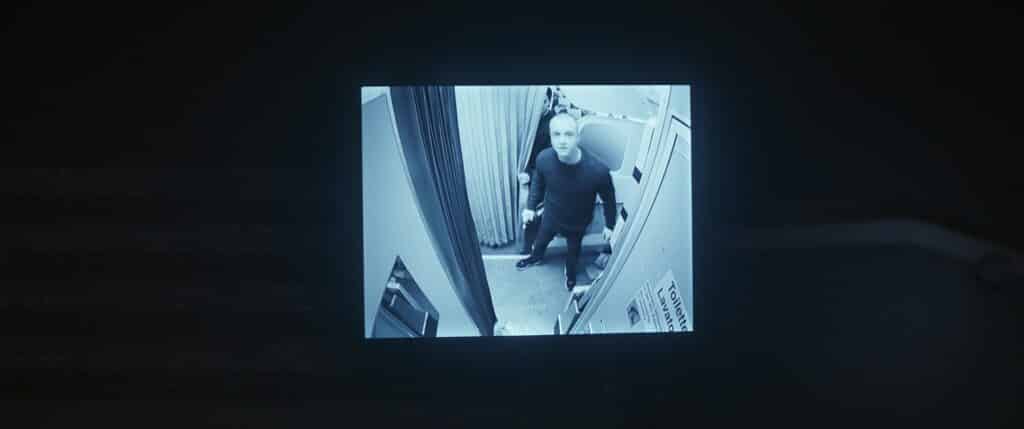Read also:
How to Watch FX Live Without CableHow To Watch AMC Without CableHow to Watch ABC Without CableHow to Watch Paramount Network Without CablePatrick Vollrath’s feature debut shifts from Hitchcockian claustrophobia to tone-deaf xenophobia.
It’s been a good long minute since we’ve seen fresh-faced young star Joseph Gordon-Levitt on our screens; the last leading role he took was in 2016’s Snowden, and since then he’s been laying low, doing the occasional voice work and leaning on his online content platform HitRecord. Now he’s back to lend some modest star power to German-backed airplane thriller 7500, a Hitchcockian potboiler that unfortunately runs out of gas mid-flight and feels far too reticent to dip into its post-9/11 politics.
The feature debut of Patrick Vollrath, mostly known for German thriller shorts like Everything Will Be Okay, 7500 promises a high-concept airplane thriller in its first half. The stage is tensely set: security camera footage runs during the credits, lingering over the men who are set to hijack a German plane. We then hop into the cramped cockpit, with captain Michael (Carlo Kitzlinger) and co-pilot Tobias Ellis (Gordon-Levitt); we see the two of them exchanging small talk, Tobias commiserating with his girlfriend, a flight attendant on the plane. We get to know just enough about our players to care about them.
The plane takes off without a hitch, but twenty minutes in, the aforementioned hijackers try to storm the cockpit, armed with improvised glass-and-duct-tape weapons. Tobias holds them off (and even knocks one unconscious) and secures the cockpit door, but the captain is killed. Suddenly, he’s the only one who can keep the plane flying, while juggling the high-wire hostage situation he’s stumbled into.

It’s in these forty-five minutes that 7500 soars, Vollrath mining an incredible amount of pressure from the real-time auspices of the film’s concept. We know as little as Tobias does about who the hijackers are and what they want — all he can do is communicate with them via the PA system and gawk helplessly at the tiny black-and-white monitor as the hijackers threaten one passenger after another until he opens the door. It’s the classic what-if scenario anyone (including, hilariously, Mark Wahlberg) has run through their head after 9/11: What would you do on a hijacked plane? Would you trade someone’s life in the moment to let terrorists kill all of you later?
Sebastian Thaler‘s fly-on-the-wall cinematography makes great use of the suffocating cockpit space, making you feel stuffed in that flying sardine can right along with Tobias. Gordon-Levitt acquits himself nicely as the everyman forced to think his way through an impossible situation, but it also asks sufficiently little of him that it makes one wonder why he thought this would be his big comeback role. Still, his unremarkableness makes him a compelling lead, especially for a film so dedicated to stark realism. He’s not about to John McClane his way through the plane, killing terrorists. He’s just a guy, frustrated at his own helplessness and the constraints of his situation, and it’s those moments that give 7500 its greatest oomph.
And yet, Vollrath’s penchant for short films betrays him on the script level, as 7500‘s high-wire suspense begins to level off sharply in the latter half. As we learn more about the hijackers, and (crucially) the perspective switches to their plight, the film becomes far less interesting and borderline offensive. What used to be abstracted images of hijackers quickly become stereotypical Turkish-German Muslim terrorists, praying to Allah and cursing the Western pig-dogs who forced them to commit this heinous act.
…a Hitchcockian potboiler that unfortunately runs out of gas mid-flight and feels far too reticent to dip into its post-9/11 politics.
What’s more, the script tumbles headlong into hokey contrivances to keep the film moving, right down to the Young Conflicted Terrorist (Omid Memar, trying ably to pump up an underwritten role with relatable panic) who needs to change his mind at the last second to stave off disaster. What’s more, the final act of the film is disappointingly grounded in more ways than one, with Tobias and Memar’s Vedat in a wearied game of de-escalation.
More than the deflated tension and convenience-riddled plot, it’s just plain (plane?) infuriating to see a movie two decades after 9/11 cater to the most pernicious Islamophobic stereotypes we’ve seen since the days of the War on Terror. It’s a gravely reactionary setup for this kind of film, especially when the hijackers themselves are given little dimension beyond this fanaticism. And what’s more, Vollrath seems content to treat their ideology as value-neutral to the scenario: 7500 is a genre exercise about tracking a realistic plane hijacking in real-time, but it refuses to engage with the broader politics of its chosen baddies. Given who he picks to personify evil, it feels downright irresponsible.
On our screens, Muslims are far too often depicted as exoticized objects of interest or evil terrorists who hate our freedoms. For a Germany already in the throes of a renewed far-right nationalist movement, this feels like more chum for the xenophobic sharks — it’s the last thing we need right now.
Most baffling of all, 7500 opens with a quote from Gandhi: “An eye for an eye makes the whole world blind.” If that’s meant to signal 7500‘s intent to explore the cycles of violence we’re all trapped in, that message gets lost here. All we see is an innocent American and his poor passengers beset with fanaticized evil, barely surviving an impossible situation. Sadly, 7500 can’t maintain enough thrilling momentum to overlook these gaping cultural blind spots.
7500 hands out bags of pretzels and hot towels on Amazon Prime Video June 18th.